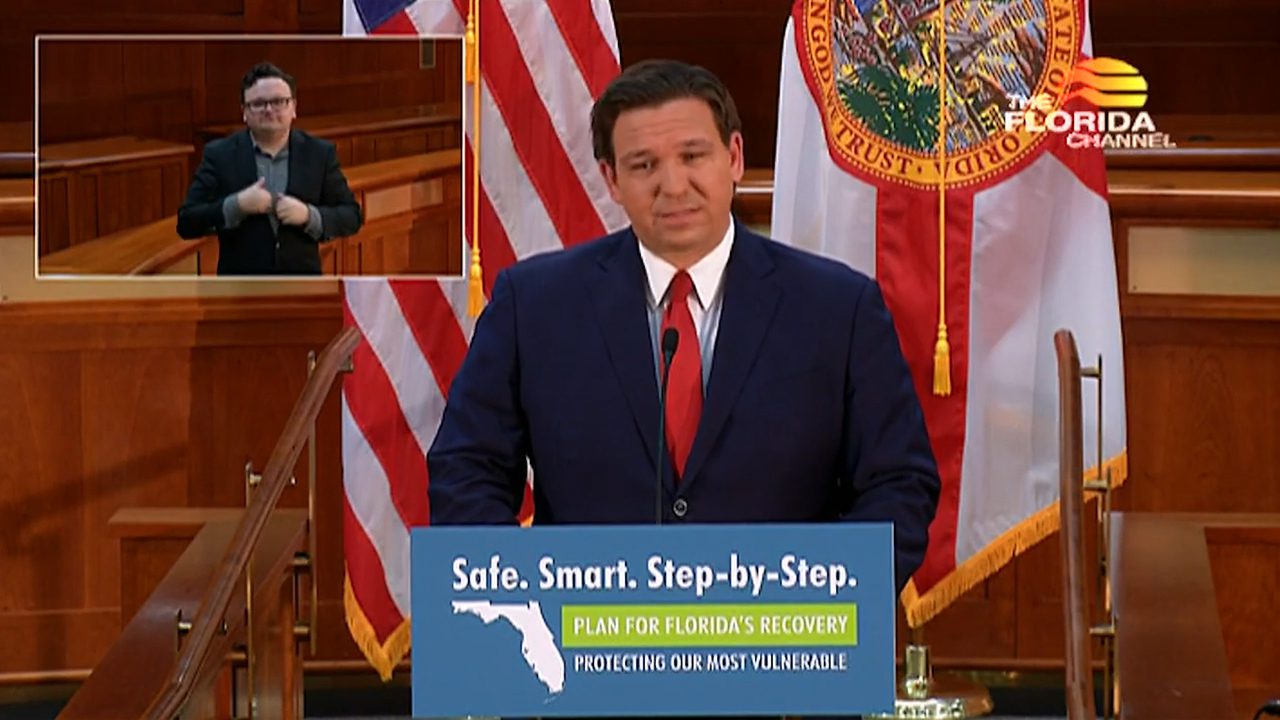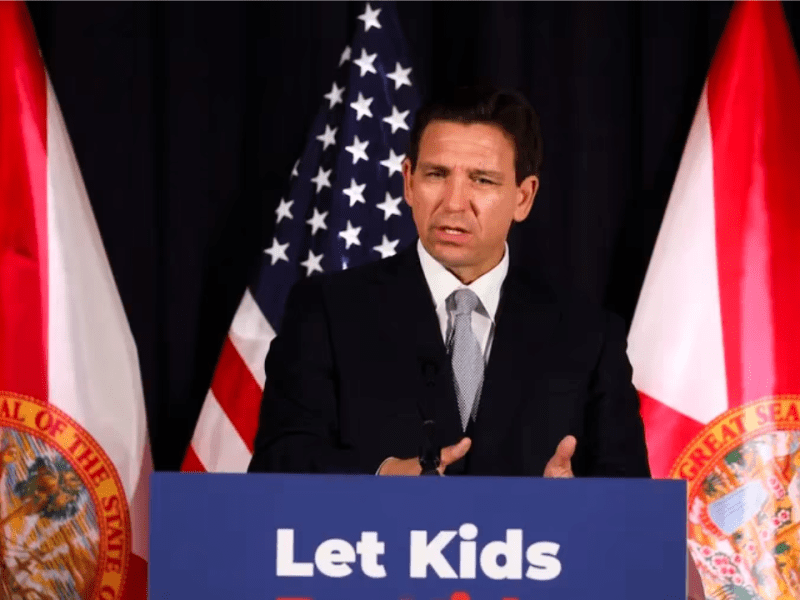Florida families to get more school vouchers as DeSantis signs $200M choice expansion
Miami Herald | by Ana Ceballos and Colleen Wright | May 11, 2021
HIALEAH – Gov. Ron DeSantis on Tuesday signed into law a $200 million school choice plan that will pave the way for some 61,000 new students to become eligible for taxpayer-funded vouchers that will help families pay for private tuition and other education expenses.
The measure is a continuation of a decades-long push to expand school choice in Florida, a move Republicans support and most Democrats have fought as they advocate for more oversight and accountability for private schools that get state-funded vouchers.
“All in all, there is going to be more opportunities for more students and more families in the state of Florida as a result of this legislation,” DeSantis said at a bill signing ceremony at St. John the Apostle Catholic School in Hialeah.
He signed the bill alongside Education Commissioner Richard Corcoran, Lt. Gov. Jeanette Nuñez, and bill sponsors Sen. Manny Diaz, R-Hialeah, and Rep. Randy Fine, R-Palm Bay.
By signing the bill, DeSantis set in motion a massive expansion of school choice in the state that will also bring some changes to the structure of the state’s voucher programs, including those that serve students with special needs.
The measure, which takes effect July 1, will fold voucher programs for students with special needs — the Gardiner Scholarship and the John M. McKay Scholarship — into the Family Empowerment Scholarship, the state’s newest voucher program that served a broader population of low- to middle-income families.
Some parents and Democrats have raised concerns that merging the Gardiner and McKay scholarship programs into the Family Empowerment program could shut out awards for children with the most needs.
Camille Gardiner, the wife of former Senate President Andy Gardiner, led the opposition to the change during the legislative session. The program is named after the former senate president, whose son, Andrew, has Down syndrome. In committee discussions, Camille Gardinersaid the bill will have “many unintended consequences” for students with special needs.
Diaz and Fine have both said the changes will not hurt students with special needs. Fine said all students currently benefiting from Gardiner scholarships will continue to receive the same benefits and “many students will get more.” Diaz said the bill will protect students with the special needs because awards will be calculated based on their disability.
DeSantis, though, did not appear to be a fan of the change.
“To be quite frank, that was not a change that I had asked for. But basically, what the Legislature did was grandfather these current Gardiner and McKay families into this new program so they will not see a change in the scope of covered services,” he said Tuesday.
Combining the Gardiner and McKay scholarships also means the awards for students with special needs will be funded through the state’s main funding pot for schools, known as the Florida Education Finance Program, rather than through their own separate budget lines.
“We will be monitoring how it affects our families and our students who have unique abilities,” DeSantis said. “If it turns out that there’s any hiccups in this, we will not hesitate to propose reforms in the January legislative session.”
Aside from merging the programs, the legislation will also raise the income eligibility cap for Family Empowerment awards. It will allow families of four with an income of nearly $100,000 to qualify for awards, up from the current $79,500 income threshold. And students will no longer need to attend a public school before receiving a state voucher.
Families will also have more spending flexibility over Family Empowerment vouchers. They will be able to use them for additional educational expenses, including technology and internet services, on top of private school tuition. Students with special needs who receive vouchers will also be able to spend the money on even more expenses, including specialized therapies, which are currently allowed for Gardiner Scholarship recipients.
“These are the most robust scholarships that will be able to be dedicated to not just tuition but to other things that impact education — maybe you need a tutor, maybe you need some other wrap around services that go with that education,” DeSantis said at the press conference.
The measure was a compromise reached by Republican lawmakers toward the end of session. Initially, the Senate proposed a much more expansive plan that would have merged the state’s five key school voucher programs, made them all state-funded and converted them into educational saving accounts ableto pay for private tutoring, therapy and even college savings.
Differences in how such a plan would be funded ended up tanking that proposal, which was sponsored by Diaz. Under Diaz’s plan, the Legislature needed to create a trust fund to collect corporate donations and state funds to pay for vouchers. The House did not want to go that far.
Featured image: Florida Governor Ron DeSantis reinforced the message that parents will be able to choose between sending their kids back to school or continue their online education at home. BY THE FLORIDA CHANNEL






